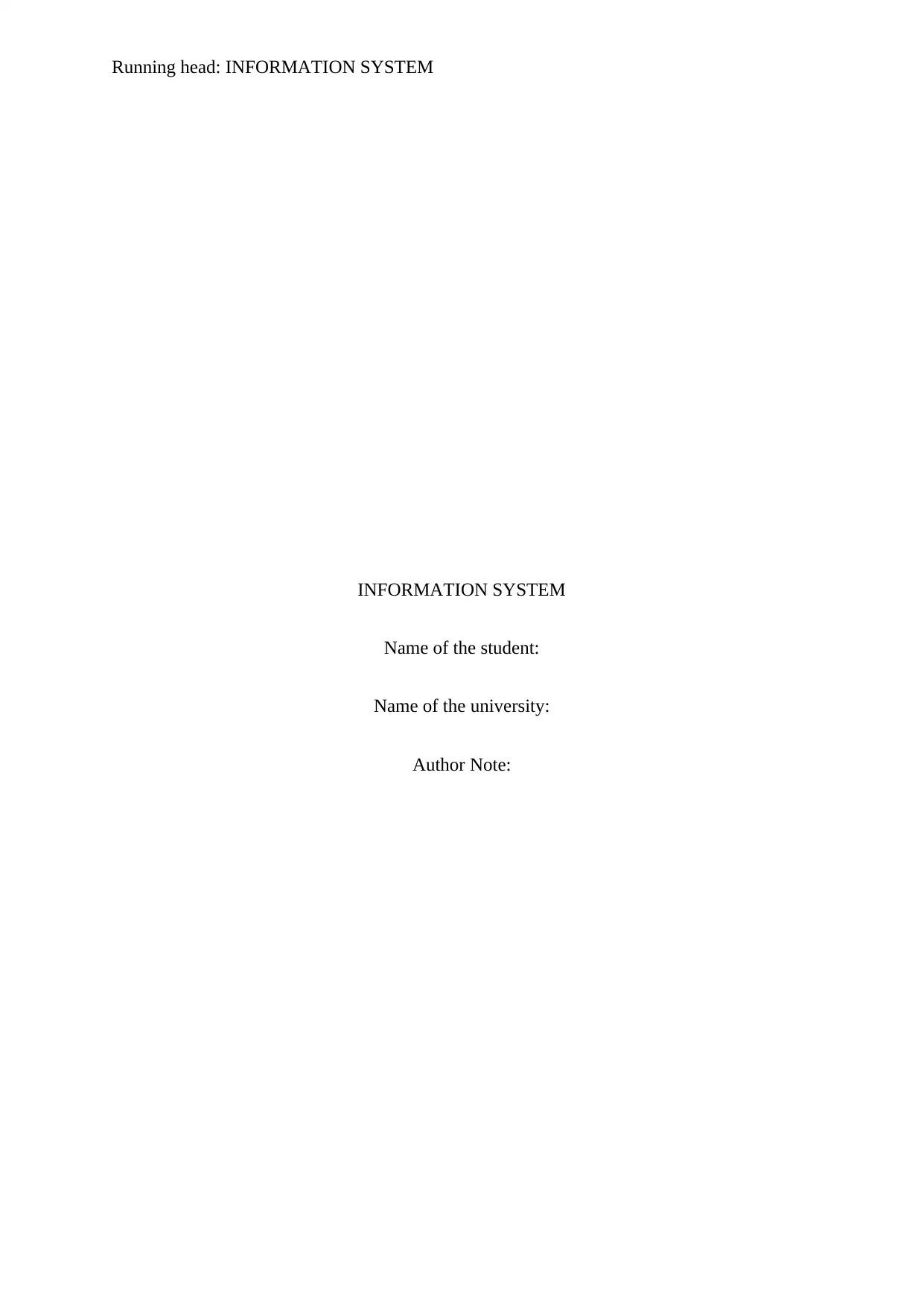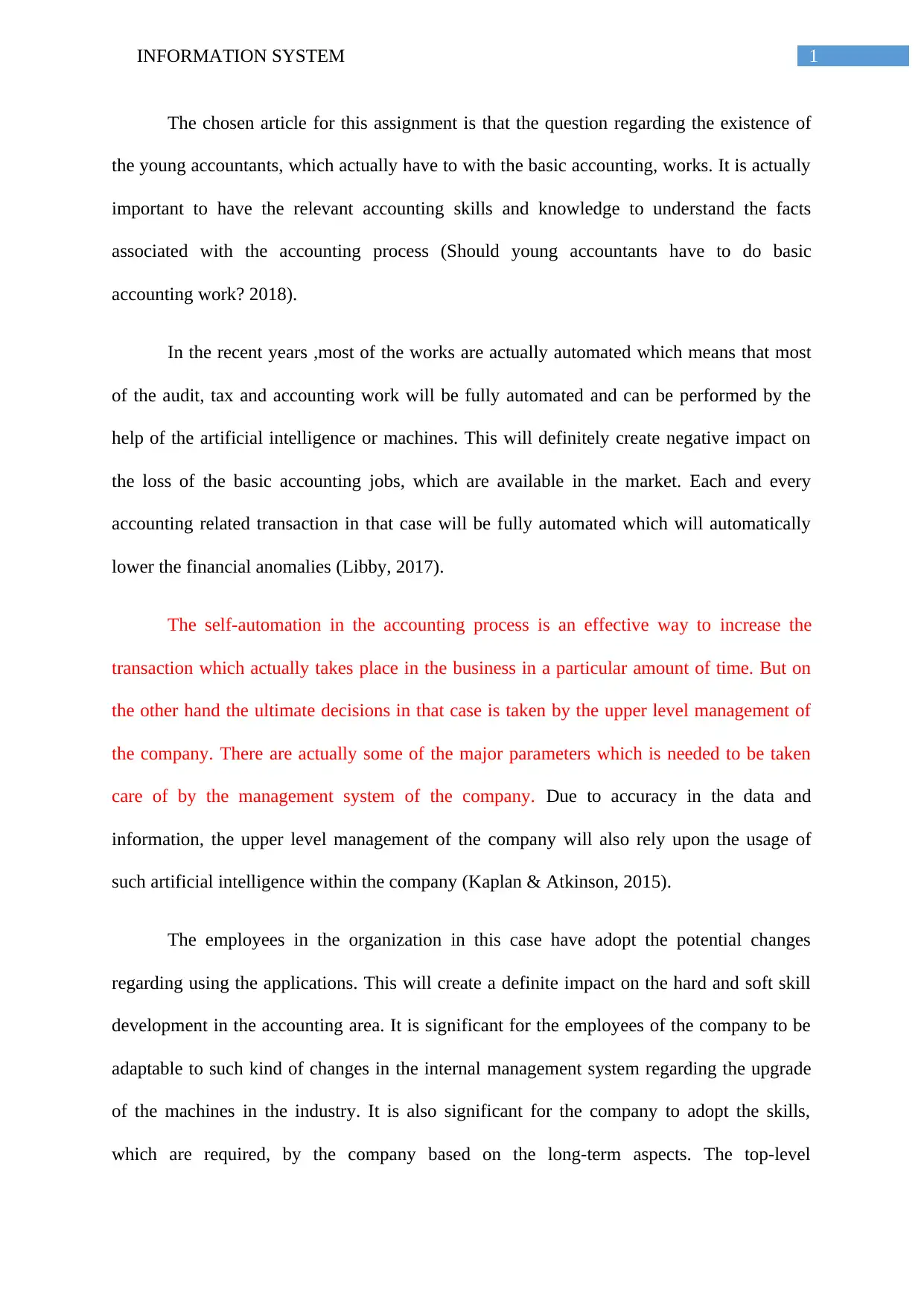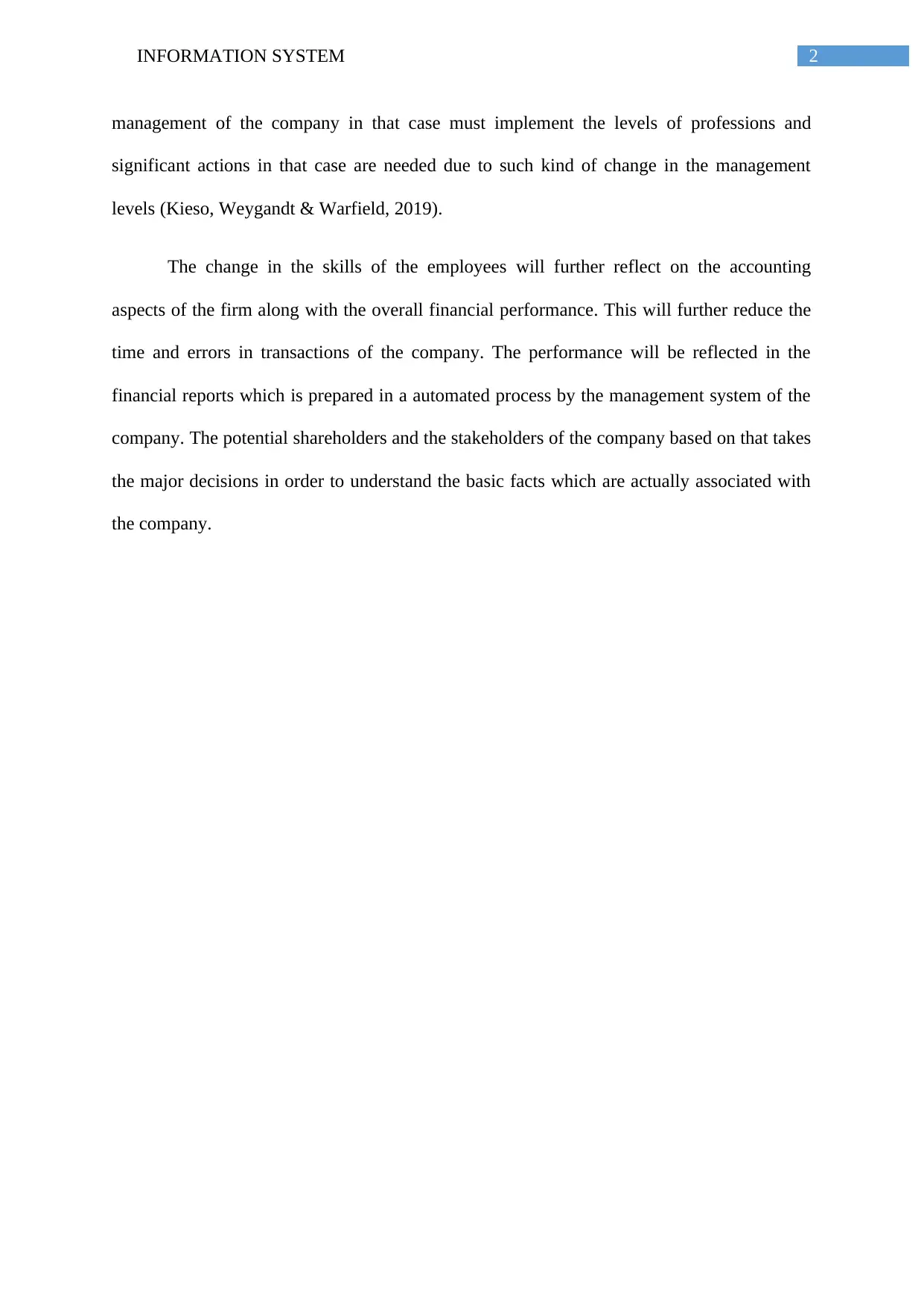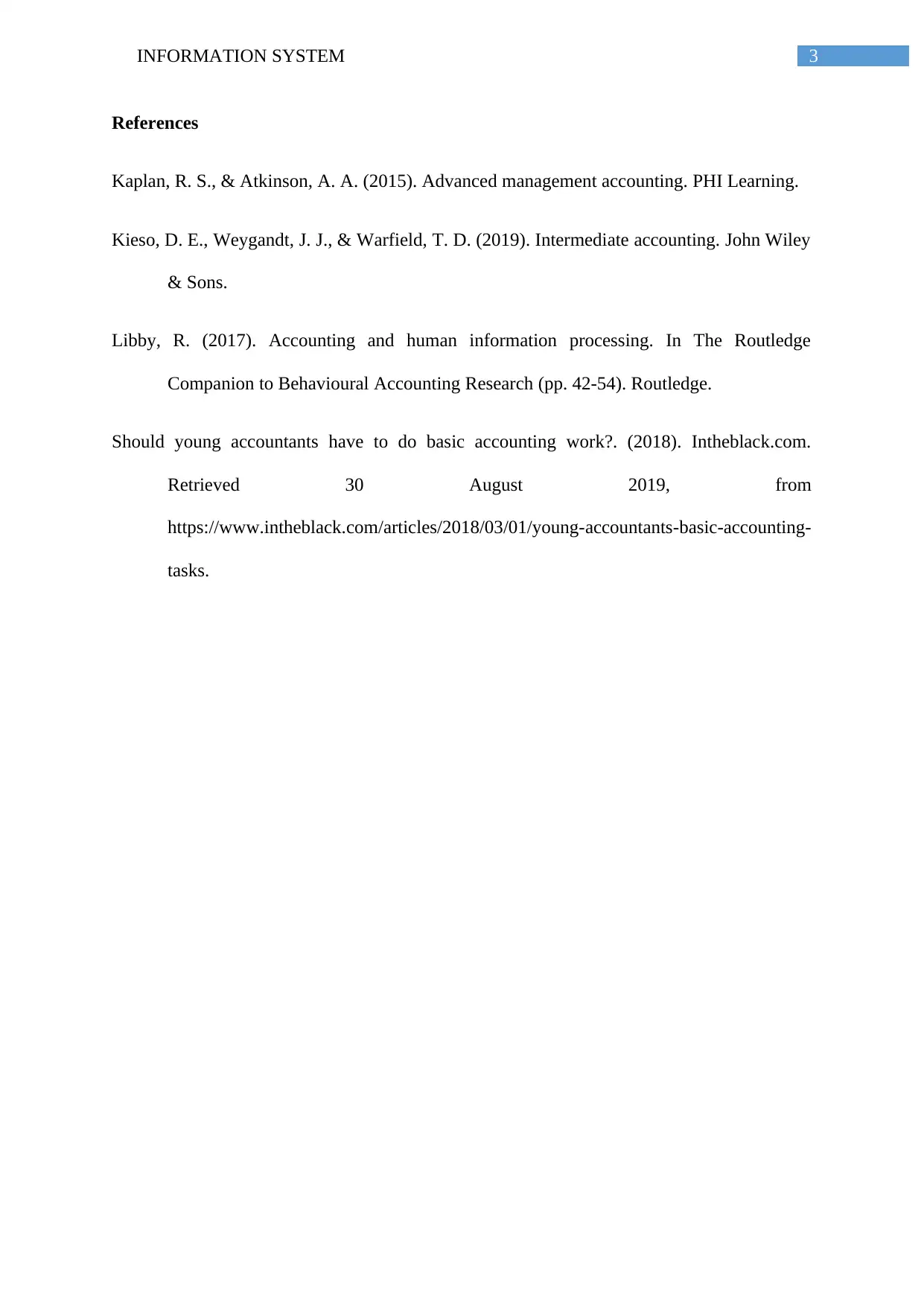The Evolving Skill Sets for Accountants and the Finance Function
VerifiedAdded on 2022/12/28
|4
|631
|34
Report
AI Summary
This report examines the evolving landscape of skills required for accountants and the finance function, highlighting the impact of automation and artificial intelligence. It discusses how these technological advancements are reshaping the roles and responsibilities of accountants, leading to a shift in the demand for both hard and soft skills. The report emphasizes the importance of adaptability, stakeholder engagement, and analytical abilities. It explores the need for accountants to develop skills in areas such as data analysis, critical thinking, and communication to remain relevant in the changing industry. Furthermore, it includes an analysis of how these changes impact the development of hard skills, such as technical accounting knowledge, and soft skills, like communication and teamwork. The report also references academic sources and industry insights to support its findings, providing a comprehensive overview of the future of accounting and finance professionals.
1 out of 4











![[object Object]](/_next/static/media/star-bottom.7253800d.svg)